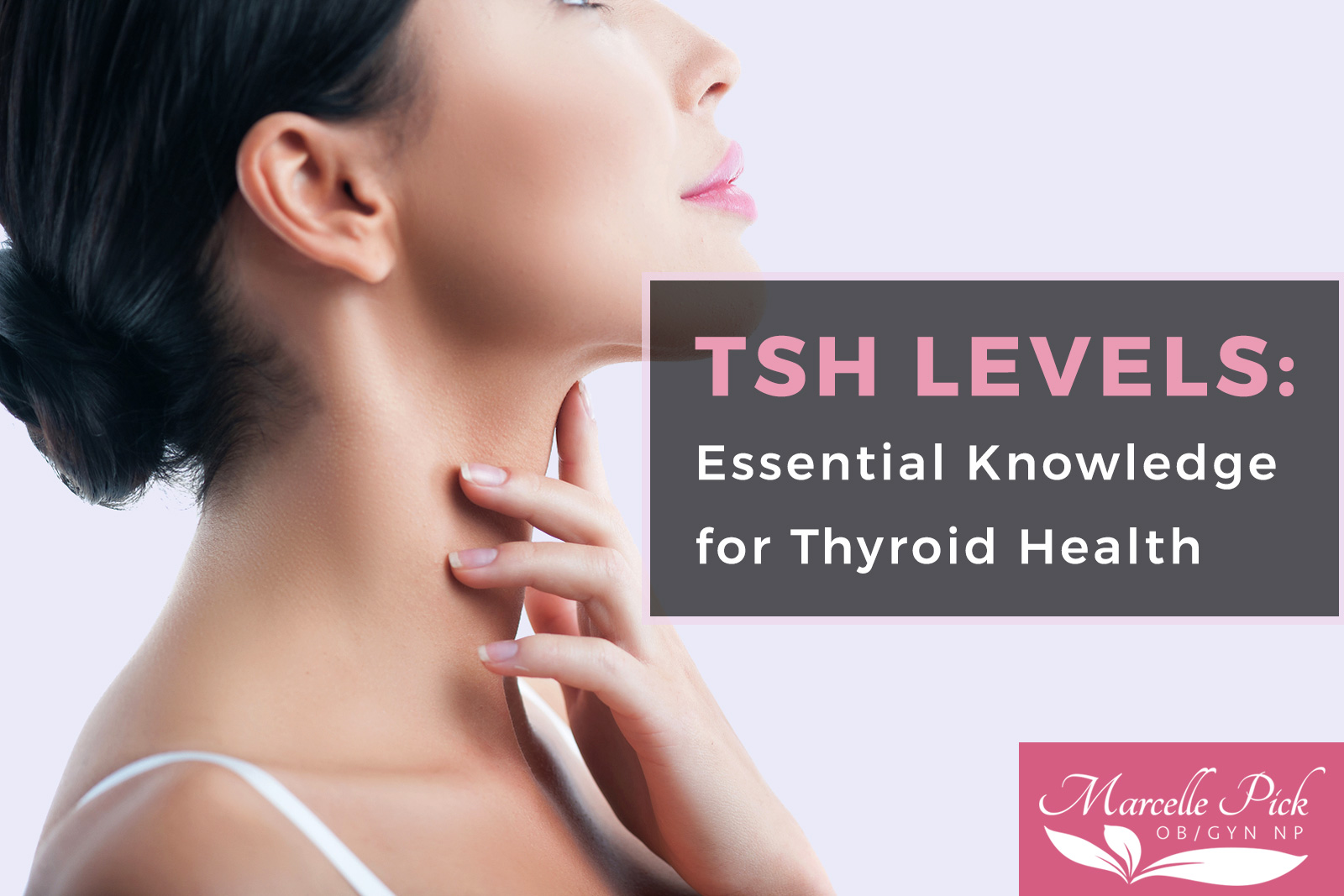I recently had a new client consultation with Rachel, who came to me after her primary care physician diagnosed her with Hashimoto’s disease. He had suggested she immediately begin taking a prescription medication, but she wasn’t sure that’s the route she wanted to take. She was uncomfortable with the idea of being on a medication for the rest of her life – and I don’t blame her!
All too often in conventional medicine, prescriptions are the answer. The problem with these prescriptions is that they address the symptom of disease, but never touch the root cause. And while Hashimoto’s can be the cause of underactive thyroid, my big question is what’s causing the Hashimoto’s to flare?
In many cases, it’s lifestyle and nutrition choices. Changing these habits can make a huge difference without the side effects of prescription medication. Let’s look at what Hashimoto’s is, the signs to look for, and the way that nutrition impacts the disease. Then I’ll give you some specific tips to help you treat Hashimoto’s naturally.
What is Hashimoto’s Disease?
Hashimoto’s is an autoimmune disease. Like all autoimmune conditions, this means your immune system is attacking your body, mistaking healthy tissue for an internal enemy. With Hashimoto’s, the area under attack is your thyroid, a small gland at the base of your neck. The thyroid is part of the endocrine system, the system responsible for the production of hormones that are essential to your body’s ability to function properly.
Hashimoto’s can cause chronic inflammation, which can lead to hypothyroidism (underactive thyroid gland). While inflammation is part of your body’s natural immune response, when it is constant, problems can ensue. Hashimoto’s is the most common cause of hypothyroidism, and occurs mainly in middle-aged women.
Symptoms of hypothyroidism can take years to develop when Hashimoto’s is to blame. Eventually, the subtle attack on your thyroid leads to chronic damage and a drop in thyroid hormone levels in the blood. Because the signs can be subtle, it’s possible to live with Hashimoto’s for many years without knowing it.
A goiter, a noticeable swelling of the thyroid gland at the front of your throat, is one of the most obvious signs of hypothyroidism. But the symptom that most women notice first is weight gain they can’t explain and can’t get rid of. Other signs include fatigue; sensitivity to cold; constipation; changes to skin and nails; hair loss; stiff, tender or weak muscles; joint pain or stiffness; depression; and forgetfulness.
Diagnosis of Hashimoto’s is made based on symptoms and specific blood tests measuring levels of thyroid hormones and thyroid-stimulating hormone, which is produced in the pituitary gland, as well as an antibody test.
With underactive thyroid, thyroid hormone levels are low while TSH is high as your pituitary gland works to boost production of thyroid hormones. Many people with Hashimoto’s also have TPO antibodies, but that test doesn’t come back positive for everyone with Hashimoto’s hypothyroidism.
The antibodies can be present without the obvious signs of Hashimoto’s, which suggests that the disease can be present without causing the uncomfortable symptoms that cause so many women to seek medical attention. That’s good news, because it tells me that it’s possible to control Hashimoto’s for many women without a prescription. Armed with the right information, natural solutions CAN work.
The earliest signs of Hashimoto’s, fatigue and weight gain, are easy to miss, since they mimic those of many other conditions. That’s why these sensitive tests are so valuable. When you catch a problem early, it’s much easier to reverse course.
Since the primary problem caused by Hashimoto’s disease is an underactive thyroid, when you’ve been diagnosed with the condition it’s crucial to support thyroid function as much as possible. And there are many great ways to do so, starting with good nutrition.
How does nutrition impact Hashimoto’s?
Good nutrition is a crucial component in good health. I’ve often talked about the idea that food is the best medicine we have to work with – and healthy food has no adverse side effects. When it comes to optimal thyroid function, there are several nutritional factors that can make a big difference.
While there are key nutrients that allow the thyroid to operate efficiently and effectively, it’s important not to overdo. Having too little or too much of certain nutrients can cause or worsen symptoms.
Iodine, selenium, Vitamin D, and B12 can all play a role in Hashimoto’s symptom flare-ups. Thyroid hormones (T3 and T4) are made up of iodine, making it essential to proper thyroid function. Selenium concentration is highest in the thyroid gland, and selenium works to convert T4 to T3, the more usable form of thyroid hormone.
Research has indicated that many patients with Hashimoto’s are deficient in Vitamin D. It’s uncertain whether these low levels were a cause or result of the Hashimoto’s. Either way, Vitamin D is an important nutrient, and deficiency can cause major problems, so it’s important to address. Vitamin B12 deficiency is also fairly common in those with Hashimoto’s.
In addition to these key nutrients, there are many nutritional factors to consider for the treatment of Hashimoto’s and the hypothyroidism it can cause. Below are some specific tips on how to eat to manage your condition.
Healthy Eating Tips for Managing Hashimoto’s Disease
Try an elimination diet to identify foods that cause a reaction
Many people with Hashimoto’s hypothyroidism can’t process gluten, dairy, certain grains, eggs, nuts and nightshade vegetables. Sugar, artificial sweeteners, and some fruit can also trigger reactions.
I suggest following a rigid plan that eliminates all of these things for a month or two, then adding them back in slowly, one at a time, to determine whether they cause a reaction for you.
Get rid of processed foods
The ideal diet to support Hashimoto’s relies heavily upon grass-fed, organic meats, wild caught fish, healthy fats, fermented foods to support the gut, and lots of vegetables.
Processed foods are convenient, but they wreak havoc on the thyroid and balance of other hormones in your body. Eating whole foods and cooking from scratch takes more planning and preparation, but your body will thank you when you take the time to feed it well.
Don’t avoid healthy fats
It’s time to realize that all fat is not the enemy. But you have to use the right kind. Processed vegetable oils, hydrogenated oils and trans fats will make you feel worse and should be avoided as much as possible. But avocados, coconut oil, olive oil and ghee can supply you with the healthy fats your body needs to function at its best.
Cook these vegetables
Goitrongens are foods that release a compound called goitrin when broken down. Goitrin can make synthesis of thyroid hormones difficult, particularly when iodine deficiency is present. Cruciferous vegetables like broccoli, cauliflower and cabbage are the most common goitrogens. The good news is that steaming or cooking these vegetables reduces the goitrogenic effect, so you may still be able to enjoy them — just not raw!
Avoid these vegetables
Nightshade vegetables, including tomatoes, potatoes, eggplant and bell peppers, are rich in vitamins and minerals – but also contain high levels of lectins and alkaloid molecules that can damage the gut. Because good gut health is vital to supporting thyroid function, and problems with the gut often lead to autoimmune disorders, it’s important to determine whether your body is sensitive to nightshades. You may not need to eliminate all nightshades forever, but when initially healing from a Hashimoto’s flare up, it’s probably a good idea to avoid them.
Embrace fermented foods
Foods that have been fermented help promote balance and healing in the gut. Kombucha, sauerkraut, coconut based yogurts, and kimchi are all good choices, but be sure the brands you choose aren’t highly processed or filled with preservatives or sugar. Better yet, make your own!
Get a handle on your sweet tooth
Refined sugar is detrimental to your health in so many ways. Over consumption can increase inflammation throughout your body.Thyroid disease increases the risk of type 2 diabetes as well, making it even more important to eliminate sugar from your diet. Read labels carefully, because sugar hides everywhere! Even too much natural sugar from fruit, honey, and pure maple syrup can be a problem.
Trade coffee and alcohol for herbal tea and water
Coffee can create a big burden on the adrenal glands, and instant brands often contain gluten. Alcohol can cause unstable blood sugar levels making hormonal balance difficult. It also causes stress to your liver and immune system.
Staying well hydrated is essential to metabolism, digestion, appetite control, and so much more. You should get most of your fluid intake from water. This doesn’t have to be boring! Try infusing your water with lemon or cucumber, choose sparkling water with natural flavorings, or drink herbal tea – it all counts!
Dietary changes to manage Hashimoto’s disease may feel rigid and limiting at first – but it’s worth it! Once you swap out unhealthy habits for healthier choices you’ll begin to feel so much better — Rachel certainly did! She discovered (and you will too) how delicious focusing on whole foods can be! Setting aside time to learn new recipes, experiment with spices, and prepare food ahead of time can mean the difference between frustration and success. You deserve the time you need to take care of yourself, especially when faced with a lifelong condition.
Supplementation may be helpful
Even with all the dietary changes, it can be exceedingly difficult to get the nutrients you need to keep your body as healthy as possible. To avoid deficiencies in key nutrients, I recommend that all women take a high quality multivitamin-mineral supplement containing iodine and selenium, essential minerals for thyroid support. Zinc, iron and copper are also important ingredients.
Sometimes, your thyroid needs a little extra support, especially if you’re experiencing a flare-up of Hashimoto’s. My Thyroid Support formula is designed to support healthy cortisol, insulin and blood glucose levels. Ingredients include both iodine and selenium, along with tyrosine and copper elements to support the “feel good” compounds dopamine and norepinephrine.
If you want the full range of health benefits to promote healthy thyroid function, try my Thyroid Health Program, which includes My Multi Essentials, Thyroid Support, and EPA/DHA support.








